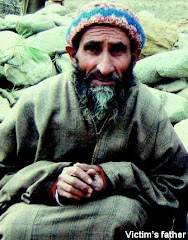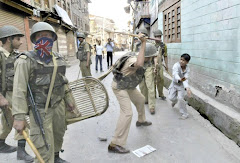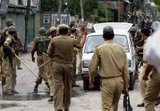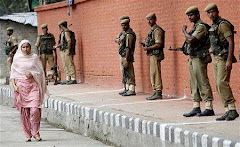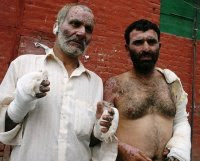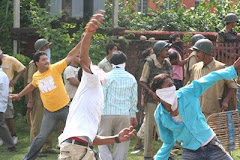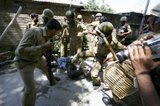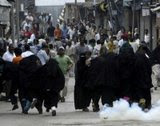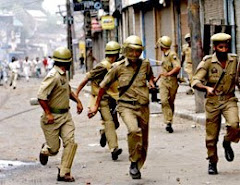
Courtesy: Daily Greater Kashmir dt July 31st, 2009Varmul, July 30: When, after firing at him in the back, policemen kept hitting him with bamboo sticks and rifle butts, Manzoor Ahmad Bhat, a stone cutter of Khadniyar village near here, felt death was imminent. Today, he prays for it. He cries the moment his wife turns and repositions his body to prevent bed sores.“On June 19, there was complete shutdown in the town in response to the Varmul chalo call of the Hurriyat Conference led by Syed Ali Shah Geelani. Some stray incidents of stone pelting had taken place in the morning. But, when I was walking near the Cement bridge, Varmul, on my way to my workplace, a stone quarry at Khanpora, there was no clash and the atmosphere was quiet. Still, they (police) fired at me. I felt total numbness below the chest. Only when my arms fell over the legs did I feel these were in tact, but lifeless,” Manzoor told Greater Kashmir at his home.“Even after firing at me, the police men kept hitting me with gun butts and lathis before lifting me in their vehicle,” Manzoor said, adding they rushed him to the Sher-i-Kashmir Institute of Medical Sciences, Soura, Srinagar.“The bullet, which is still lodged in my spinal chord, has paralyzed me chest down for life,” Manzoor said, adding that after a 6-hour operation, the doctors had decided against removing the bullet from my body as it would further damage my torn spinal chord.” He was the sole breadwinner of the family comprising his wife and aged father. “Who is going to take care of them,” he asked. Manzoor’s father, Ghulam Mohi-ud-din, is worried too. At a time when he could have expected his only son to take care, he has to look after the cripple throughout his life.“I don’t have the money to buy a wheelchair for my paralyzed son. Some injections cost about Rs 2500 each and he needs several shots of these. There is nobody to help us out,” he told Greater Kashmir. “What sin had my son committed that even after shooting at him, our own policemen beat him up with their canes and rifle butts,” Mohi-ud-din asked, adding that he had left home in search of bread for the family and was not even remotely connected with the violent incidents that had taken place in the town earlier in the day. He said there was no hope for the family as it had virtually lost the sole bread earner.










